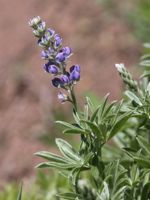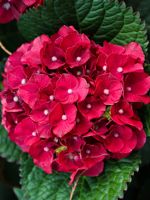Mon-Fri 9am - 5pm Mountain time
Cherry Go Round™ Reblooming Hydrangea vs Silky Lupine
Lupinus sericeus
Hydrangea macrophylla Hokomaburlac
CUSTOM GROW
NOT AVAILABLE THIS SEASON - MIGHT RETURN
Silky Lupine is a native perennial wildflower known for its upright spikes of blue to violet flowers. Blooming from late spring into summer, the nectar-rich, showy blossoms attract a variety of pollinators, especially bees and butterflies. The plant’s fine, silky foliage provides soft texture and visual interest, enhancing landscapes throughout the growing season.
Silky Lupine is a nitrogen-fixing plant that enriches soils and supports surrounding vegetation. Its deep roots stabilize soil, and it spreads naturally by ejecting seeds from drying pods. If spread isn’t desired, new seedlings are easy to remove. While it is foraged by some wild animals, it contains alkaloids that are toxic to livestock. Silky Lupine is well-suited to pollinator gardens, naturalization plantings, erosion control, and ecological restoration projects.
Cherry Go Round Reblooming Hydrangea™ is a compact flowering shrub. The deep red flowers will bloom in late spring and last until fall. The mophead-like flowers add multi season interest to your landscape. The petite form is well suited for urban yards and tight spaces.
Flowers grow on old wood which requires only spent flowers and damaged wood to be removed. The Cherry Go Round Reblooming Hydrangea is part of the Bloomin’ Easy® collection.
On the prairies, some customers will plant the Cherry Go Round Reblooming Hydrangea in pots and over winter them in their garage. They need additional winter protection for the flower buds.
Note: Flower colour may be influenced by the soil pH. In more alkaline soils the flowers will emerge more pink whereas those in acidic soils will be a deep purplish red. They prefer slightly acidic soils with a pH of 5.7-6.5.
Silky Lupine Quick Facts
Cherry Go Round™ Reblooming Hydrangea Quick Facts
Toxicity: toxic to sheep and other livestock

